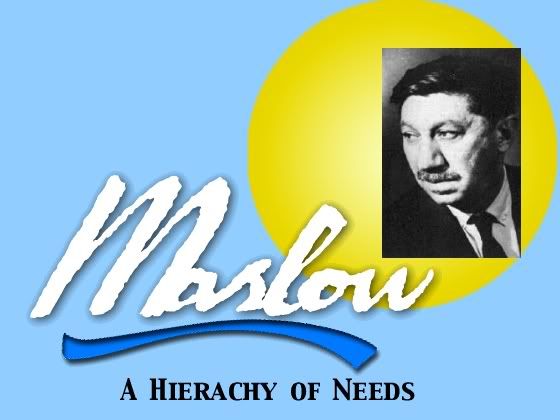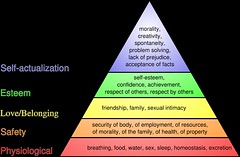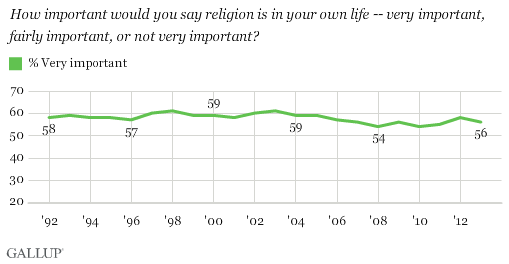
A.K. Willard
There is a huge Industry based upon seeking to disprove Christianity,. It's a subset of valid academic research. No it's not a conspiracy but it's atheistic academics taking advantage of the scholarly publication industry to manufacture atheist propaganda. That would be fine except the studies they produce are marked by bad methodology. On Monday we saw a couple of examples of these bad studies; the methodology of the study by Amitai Shenhav was putrid ( the one about belief in God is magical thinking). [1] Another study mentioned in the article was done by A.K. Willard and A. Norenzayan, I'll be examining that study here along with another one by the same team.Those two are associated with a large body of badly done studies. They themselves specialized in this sort of ideological attempt to disprove the validity of religious belief. For example their study that supposedly finds that a feeling of God;s presence is reducible to a natural psychological survival mechanism.
Some studies have explored questions about brain function and the texture or mechanics of mystical experience. Van Elk et al find that the sensation of supernatural presence is an adaptation from the need to over-detect presences of predictors in the jungle.[2] In other words if one sets out on a jungle trail, and there is darkness, sensing a predictor and turning back from the trek would be helpful. If the sensation was wrong and there was no predictor the mistake of being wrong would be less graven that of being right but ignoring the sense. Thus, the sensation of presence is selected for. This might be used by a skeptic to answer the argument from mystical experience. Elk has five experiments that that seek to explore weather processing concepts about supernatural agents enhances detection in the environment.
Participants were presented with point light stimuli representing kinds of biological motion, or with pictures of faces embedded in a noise mask. Participants were asked to indicate if the stimuli represented a human agent or not. In each case they used three “primes,” one for supernatural, one for human, one for animal. They found that supernatural primes facilitated better agent detection.[3] The argument is that the perceived presence of agents in threatening situations and tendencies to anthropomorphizing leads stronger belief in ghosts, demons, angels, gods and other “supernatural” agency.[4] They point to a body of work consisting of several studies showing that particular paranormal beliefs are a reliable predictor of illusory perceptions of faces and agency detection. These studies include Willard and Norenzayan (2013), Reikki et. al. (2013), and Petrican and Burris (2012).[5] “[Al]...though these studies provide tentative support for the relation between agency detection and supernatural beliefs, the notion that reigious beliefs are a byproduct of perceptual biases to detect patterns and agency has been challenge by several authors...” (Bulbulia, 2004, Lisdorf 2007, and McKay and Efferson, 2010).[6]
While it may be true that some aspects of mystical experience are genetically related, and may be related to agent detection, that is no proof that mystical experience originates wholly within a naturalistic and genetic framework. First, because these studies only demonstrate a correlation between supernatural beliefs and agency detection. There is no attempt to establish the direction of a causal relationship. If there is a connection between supernatural and agent detection it could as easily be that awareness of supernatural concepts makes one more sensitive to agent detection. Secondly, of course just being genetically related doesn't reduce the phenomenon wholly to genetic endowments. Thirdly, there is a lot more to mystical experience than agent detection. Both involve sensing a presence beyond that point the differences are immense. I am not even sure that facial recognition and sensing a predator are similar enough to count for anything. In sensing being observed one is not usually aware of visual ques as one would be in facial recognition. There's no guarantee that the quality of the sensing is the same. Feeling the divine presence is much more august and involves levels and textures. Such an experience is, overall, positive, life changing, transformational (even noetic) but merely feeling one is being observed could be creepy, negative, or even trivial.
Every study I have seen by Ara Norenzayan appears to be an attempt to disprove the validity or Religious belief. He did one called, "Cognitive biases explain religious belief, paranormal belief, and belief in life’s purpose," [7] in which he uses many of the same approaches used in the magical thinking study:
Cognitive theories of religion have postulated several cognitive biases that predispose human minds towards religious belief. However, to date, these hypotheses have not been tested simultaneously and in relation to each other, using an individual difference approach. We used a path model to assess the extent to which several interacting cognitive tendencies, namely mentalizing, mind body dualism, teleological thinking, and anthropomorphism, as well as cultural exposure to religion, predict belief in God, paranormal beliefs and belief in life’s purpose. Our model, based on two independent samples (N = 492 and N = 920) found that the previously known relationship between mentalizing and belief is mediated by individual differences in dualism, and to a lesser extent by teleological thinking. Anthropomorphism was unrelated to religious belief, but was related to paranormal belief. Cultural exposure to religion (mostly Christianity) was negatively related to anthropomorphism, and was unrelated to any of the other cognitive tendencies. These patterns were robust for both men and women, and across at least two ethnic identifications. The data were most consistent with a path model suggesting that mentalizing comes first, which leads to dualism and teleology, which in turn lead to religious, paranormal, and life’s-purpose beliefs. [8]
Intent of disproof seen here:
Religion is an important part of the lives of billions of people around the world, and a cross culturally recurrent aspect of minds and cultures. Over the past decade, several theories have emphasized the natural basis of religious belief and experience, found in cognitive biases that are byproducts of brain functions (Atran & Norenzayan, 2004; Barrett, 2000, 2004; Bloom, 2007; Boyer, 2001, 2008; Kelemen, 2004). These theories converge on suggesting that belief in supernatural agents such as gods and spirits, and related phenomena, emerge from a set of interrelated cognitive biases, such as perceptions of agency and mentalizing, mind-body dualism, and teleological intuitions. Equipped with these cognitive biases, human minds gravitate towards religious and religious-like beliefs and intuitions.[9]He is treating conceptual philosophical ideas as though they are determined by brain functions with the implication they are glitches. It's not a philosophical idea to be reasoned about but a mistake a misfire a primitive cognitive ability that has grown obsolete. This is just the ideological reaction to counter ideas. Here is the proof. Dualism is a philosophical idea."In the philosophy of mind, dualism is the theory that the mental and the physical – or mind and body or mind and brain – are, in some sense, radically different kinds of thing."[10] Here he treats it like primitive cognitive ability:
1.2.2. Dualism Another hypothesized cognitive foundation of religious belief is mind-body dualism, which refers to the intuition that minds are separate from bodies (Bloom, 2005; Damasio, 1994). According to this theory, minds are seen as a non-physical substance that can be related to bodies, but not reliant on bodies, opening up the 380 A.K. Willard, A. Norenzayan / Cognition 129 (2013) 379–391 possibility of minds existing without bodies. In a sense, the ability to think dualistically is a necessary condition for understanding concepts such as ghosts and spirits or any other disembodied supernatural agent (Bloom, 2007). [11]
Here he implies that mind itself is just such a primitive cognitive function."Consistent with this, neuro-imaging studies found that among Christian believers in the US (Kapogiannis et al., 2009) and in Denmark (Schjoedt et al., 2009), thinking about or praying to God, activates brain regions associated with Theory of Mind." Here he is still harping on teleogy as he did in the magical study:
1.2.3. Teleology A third cognitive hypothesis is that religious beliefs are rooted in teleology. Teleology is the tendency to see things in the world as having a purpose and having been made for that purpose (Kelemen, 1999; Kelemen & DiYanni, 2005)." Teleology is a philosophical concept but it is indicative of a belief in higher order. He is against higher order since he's an atheist, this is his ideological bias.[12]
His methodology is based upon students answering surveys. two samples test for replicability, robustness, and generalizability. Sample 1: 492 undergraduate psychology students. Sample 2 "consisted of 920 adult Americans collected though Amazon’s Mechanical Turk.;" Surveys completed online. For several concepts such as teleology they had no standardized scale and had to makeup their own. Of course if we suspect bias we can't trust their scales.
......The Conclusion:
Although our cognitive biases remain predictors of purpose above and beyond the variance predicted by belief in God, belief in God remains the strongest predictor. Further, the model no longer passed the test of fit when we reversed this relationship to have belief in purpose lead to belief in God. This suggests that much of the variance in belief in life’s purpose, is coming from belief in God. The remaining relationships with our cognitive biases could be seen as an intuition towards purpose above and beyond what is encouraged by belief in God, or it could be something left over from growing up in a largely Protestant Christian culture. This interesting question could be answered by going beyond a Christian sample. Regardless, it does not seem to be the case that purpose is another sort of intuition that leads to belief in a supernatural power. Rather, belief in God appears to lead to a greater sense that there is a purpose to life[13]
They have made the astounding discovery that belief in God gives one a motivation to believe in a purpose in life. The non belief in God while laden with a sense of purpose is not necessarily transmute into belief by that sense. This is hardly an anti-religious finding. The problem is they way they treat belief and other aspects of reason that support belief. They even include "1.2.4. Mentalizing All of the above cognitive tendencies have a clear common feature: they require some mentalizing ability. There has been some speculation about the relationship between metalizing and religious belief." "mentalizing means imagining, which is necessary for science as well as religion, and for math and any kind of reasoning. They are treating all uses of the mind as though they are some obsolete function developed for life on savanna. The implication being that belief in God just a throw back to primitive brain function: "Regardless, it does not seem to be the case that purpose is another sort of intuition that leads to belief in a supernatural power. Rather, belief in God appears to lead to a greater sense that there is a purpose to life." In other words purpose does not lead to God, but God to a sense of purpose. The sense of purpose is an illusion based upon the primitive nonsense of belief in God.
Williard and A., Norenzayan are valid academics. they have the credentials, their works are published and they work with good people. Norenzayan has published with R.A.McNamara for whom I have the utmost respect.[14] Do not think I'm attacking his credentials. I am attacking his bias. There has come to be a whole industry fueled this this ideological atheism in science. Nor am I advocating policing science. I am totally for academic freedom. The only thing we can do is get more Christians to study social science.
Sources
[1] magical thinking study: Willard is Post doctoral fellow at UT Austin, psychology, received her Ph.D. in Psychology university of British Columbia. She primarily works with Hindu and Muslims. Norenzayan is a graduate student, he is at University British Columbia.
[2] Michiel Elk, Bastiaan T. Rutjens, Joop van der Pligt,& Frenk van Harrveled (2016) Priming of Supernatural agent concepts and agency detection, Religion, Brain and Behavior, 6:1, 4-33, DOL: 10.1080/2153599X.2014.93344.
[3] Ibid., 4.
[4] Ibid., 5.
[5] Ibid., 5. A.K. Willard and A. Norenzayan, “Cognative Biases Explain Religious Belief and belief in life's purpose,” Cognition 129 (2013), 379-391. T. Reikki, M.Litterman, et. al. “Paranormal and religious believers are more prone to illusary face perception than skeptics and none believers.” applied cognitive psychology 27 (2013) 150-155, and R. Petrican and C.T. Burris, “Am I a Stone? Over attribution of agency and Religious Orientation,” Religion and Spirituality 4 (2012), 312-323.
[6] Ibid., 6. J. Bulbulia, “The Cognitive and Evolutionary Psychology of Religion,” Biology and Philosophy 19, (2004) 655-686, A. Lisdorf, “What's HIDD'n in the HADD,” Journal of Cognition and Culture 7, (2007), 341-353, and R. McKay and C. Efferson, “Subtitles of Error Management,” Evolution and Human Behavior, 31 (5)(2010) 309-319.
[7] Aiyana K. Willard Ara Norenzayan , "Cognitive biases explain religious belief, paranormal belief, and belief in life’s purpose." Cognition, published by Science dorect, 1 article info Article history: Received 4 March 2013 Revised 25 July 2013 Accepted 27 July 2013 Online PDF format, URL:
http://www2.psych.ubc.ca/~ara/Manuscripts/Willard_Norenzayan_Cognitive_Biases.pdf
[8]Ibid.
[9]Ibid.
[10]Robinson, Howard, "Dualism", The Stanford Encyclopedia of Philosophy (Fall 2020 Edition), Edward N. Zalta (ed.), URL =
[11]Norenzayan,"Cognitive biases...," op cit.
[12]Ibid.
[13]Ibid.
[14] McNamara, R. A., Norenzayan, A., & Henrich, J. (2016). Supernatural punishment, in-group biases, and material insecurity: Experiments and ethnography from Yasawa, Fiji. Religion, Brain & Behavior, 6, 34-55.





